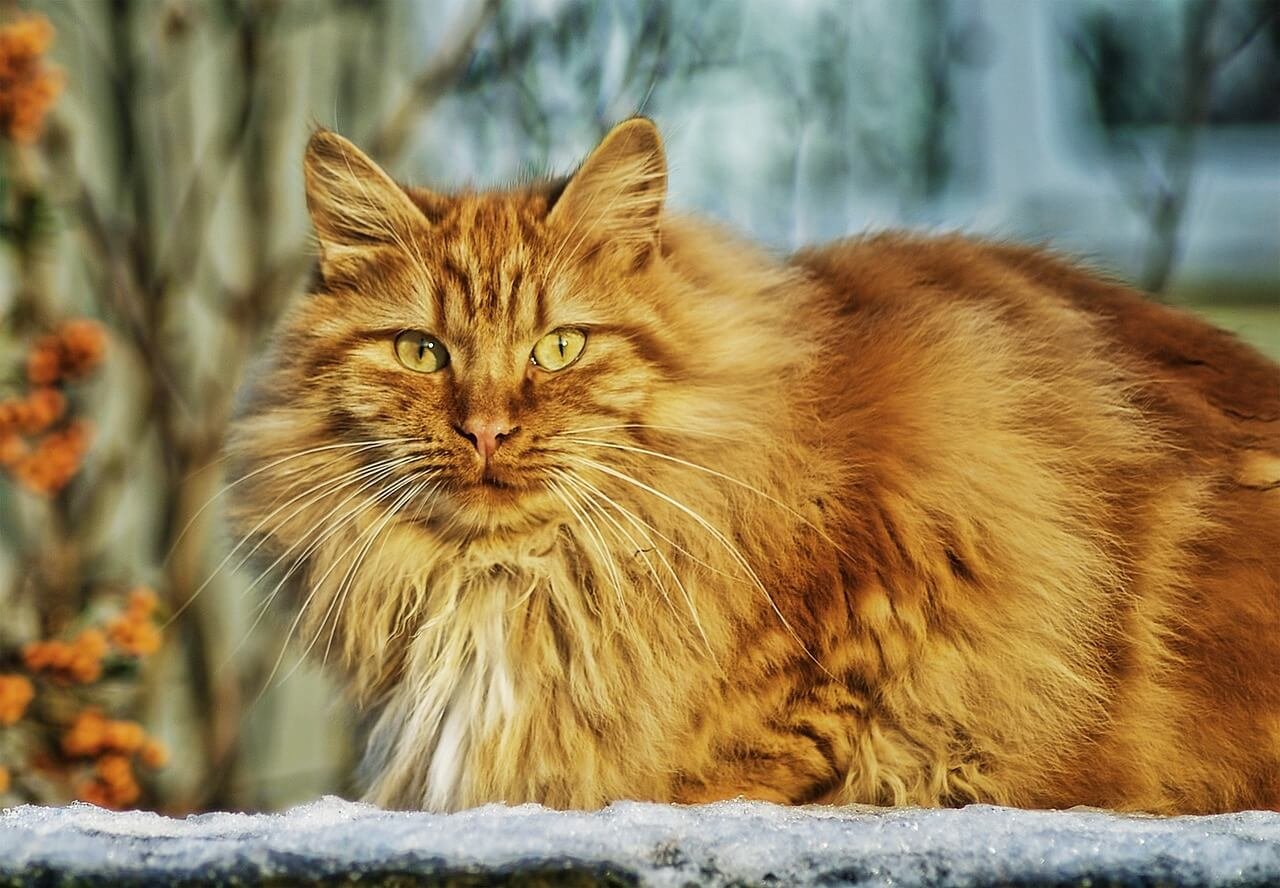Can Cats Eat Egg Yolk? A Guide to Feline Nutrition
Cats are curious creatures, and their dietary habits often spark questions from pet owners. One common query is whether cats can safely eat egg yolk. Eggs are a nutritious food for humans, but what about our feline companions? While cats are obligate carnivores and thrive on animal-based proteins, certain human foods, like egg yolk, can offer benefits if introduced properly. However, it’s essential to understand the risks, benefits, and proper preparation before sharing this food with your cat. In this blog post, we’ll explore whether cats can eat egg yolk, how to serve it safely, and why moderation is key. Let’s dive into the details to ensure your furry friend stays healthy and happy.
Nutritional Benefits of Egg Yolk for Cats
Egg yolk contains several nutrients that can be beneficial for cats when fed in moderation. Here’s a breakdown of the key nutritional advantages:
Rich in Protein
Egg yolk provides high-quality protein, which is essential for muscle development and overall health in cats.Source of Healthy Fats
The fats in egg yolk can support skin health and provide a shiny coat.Packed with Vitamins
Egg yolk contains vitamins like A, D, and E, which contribute to immune function, bone health, and cellular repair.Contains Choline
Choline, found in egg yolk, supports brain health and liver function in cats.Natural Source of Omega-3s
Omega-3 fatty acids in egg yolk can reduce inflammation and promote cardiovascular health.
While these benefits make egg yolk a potentially valuable addition to your cat’s diet, it’s important to feed it sparingly to avoid overloading them with calories or fat. Always prioritize a balanced diet tailored to your cat’s needs.
Potential Risks of Feeding Egg Yolk to Cats
While egg yolk can be nutritious, there are some risks associated with feeding it to your cat. Understanding these risks ensures you can make informed decisions about your pet’s diet. Here’s what to watch out for:
High Fat Content
Excessive fat from egg yolk can lead to obesity or digestive upset in cats.Risk of Salmonella
Raw egg yolk may contain harmful bacteria like salmonella, which can make your cat sick.Allergic Reactions
Some cats may develop allergies or sensitivities to egg yolk, resulting in symptoms like vomiting or diarrhea.Imbalanced Diet
Overfeeding egg yolk can disrupt the balance of nutrients in your cat’s diet, leading to deficiencies or excesses.Choking Hazard
Large chunks of cooked egg yolk could pose a choking risk if not prepared properly.
By being aware of these risks, you can take steps to minimize potential harm and ensure your cat enjoys egg yolk safely. Moderation and proper preparation are key.
Check this guide 👉Can Cats Eat Chicken Bones? Best 7 Health Tips!
Check this guide 👉Can Cats Eat Blueberries? Best 7 Health Tips!
Check this guide 👉Can Cats Eat Eggs? Best 7 Expert Tips!

Benefits of Egg Yolk for Cats | Risks of Feeding Egg Yolk to Cats |
|---|---|
High-quality protein | High fat content |
Rich in vitamins (A, D, E) | Risk of salmonella from raw eggs |
Supports skin and coat health | Allergic reactions |
Contains choline for brain health | Imbalanced diet |
Provides omega-3 fatty acids | Choking hazard |
How to Safely Feed Egg Yolk to Your Cat
If you decide to introduce egg yolk into your cat’s diet, it’s crucial to do so safely. Here are some guidelines to ensure your cat enjoys this treat without any adverse effects:
Cook the Egg Yolk Thoroughly
Always cook the egg yolk to eliminate the risk of salmonella or other harmful bacteria.Serve in Small Portions
Limit the amount of egg yolk to a teaspoon or less per serving to prevent overfeeding.Avoid Seasonings or Additives
Never add salt, pepper, or other seasonings, as these can be harmful to cats.Introduce Gradually
Start with a tiny amount to see how your cat reacts before offering larger portions.Monitor for Adverse Reactions
Watch for signs of digestive upset, such as vomiting or diarrhea, after feeding egg yolk.
By following these tips, you can safely incorporate egg yolk into your cat’s diet while minimizing potential risks. Always consult your veterinarian before making significant changes to your cat’s nutrition.
Alternatives to Egg Yolk for Nutritional Boosts
If you’re looking for other ways to enhance your cat’s diet without using egg yolk, there are plenty of safe and nutritious alternatives. Here are some options to consider:
Cooked Chicken or Turkey
Lean meats like chicken or turkey provide high-quality protein without added fat.Fish (in Moderation)
Small amounts of cooked fish, like salmon or tuna, can offer omega-3 fatty acids.Pumpkin Puree
Plain pumpkin puree aids digestion and can help with hairballs.Cat-Safe Vegetables
Steamed carrots or green beans can add variety and fiber to your cat’s meals.Specialized Cat Supplements
Vet-approved supplements can address specific nutritional needs without relying on human foods.
These alternatives can provide similar benefits to egg yolk while catering to your cat’s unique preferences and dietary requirements. Always prioritize safety and moderation when introducing new foods.
Signs Your Cat May Enjoy Egg Yolk
Not all cats will take to egg yolk, but some may show clear signs that they enjoy it. Here are some behaviors that indicate your cat might like this treat:
Excited Meowing
If your cat meows eagerly or follows you to the kitchen when you’re preparing egg yolk, they’re likely interested in trying it.Sniffing and Investigating
Cats often sniff new foods curiously—if your cat lingers near the bowl, they’re probably intrigued.Eagerly Licking the Bowl
If your cat finishes the egg yolk quickly and licks the bowl clean, it’s a good sign they enjoyed it.Purring While Eating
Purring during or after eating egg yolk suggests satisfaction and contentment.Asking for More
If your cat begs for another serving by pawing at you or sitting by their food dish, they clearly liked the taste.
These behaviors can help you gauge whether egg yolk is a hit with your cat. However, always introduce new foods gradually and monitor their reaction to ensure it agrees with them.
Common Mistakes to Avoid When Feeding Egg Yolk
While egg yolk can be a healthy addition to your cat’s diet, there are some common mistakes pet owners make when offering it. Here’s what to avoid:
Feeding Raw Egg Yolk
Raw eggs can contain harmful bacteria like salmonella, so always cook the yolk thoroughly.Adding Salt or Spices
Seasonings can upset your cat’s stomach or even be toxic, so keep egg yolk plain.Overfeeding
Too much egg yolk can lead to weight gain or nutrient imbalances—stick to small portions.Mixing with Unsafe Foods
Avoid combining egg yolk with ingredients like onions, garlic, or dairy, which are harmful to cats.Ignoring Allergies
If your cat shows signs of an allergic reaction, such as itching or vomiting, stop feeding egg yolk immediately.
By avoiding these mistakes, you can ensure your cat enjoys egg yolk safely without compromising their health. Always prioritize moderation and proper preparation.
Fun Facts About Cats and Their Dietary Preferences
Cats are fascinating creatures with unique dietary habits and preferences. Here are some fun facts about how cats interact with food, including treats like egg yolk:
Obligate Carnivores
Cats require animal-based proteins to thrive, making foods like egg yolk a suitable occasional treat.Strong Food Memories
Cats often remember foods they’ve enjoyed in the past and may crave them later.Selective Eaters
Many cats are picky eaters and may prefer certain textures or flavors over others.Curiosity Drives Tasting
Cats are naturally curious and may try new foods out of interest, even if they don’t love them.Taste Buds Differ from Humans
Cats have fewer taste buds than humans and lack the ability to taste sweetness, which influences their food preferences.
These fun facts highlight the complexity of feline eating habits and their unique relationship with food. Understanding these quirks can help you better cater to your cat’s tastes while keeping their diet safe and balanced.
Frequently Asked Questions About Cats and Egg Yolk
Can cats eat raw egg yolk?
No, raw egg yolk poses a risk of salmonella and should always be avoided.
How much egg yolk can I give my cat?
Limit servings to a teaspoon or less, no more than once or twice a week.
Is egg white safe for cats?
Egg whites contain avidin, which can interfere with biotin absorption, so they should be avoided.
Can kittens eat egg yolk?
Yes, but only in very small amounts and under veterinary supervision.
What should I do if my cat has an allergic reaction?
Stop feeding the egg yolk immediately and contact your veterinarian for advice.
Making Informed Choices for Your Cat’s Diet
Feeding your cat egg yolk can be a safe and nutritious option if done correctly, but it’s not a necessity for their overall health. Understanding the benefits, risks, and proper preparation methods ensures you make informed decisions about your pet’s diet. Remember, every cat is unique, and what works for one may not suit another. Always prioritize a balanced diet and consult your veterinarian before introducing new foods. By staying attentive to your cat’s needs and preferences, you can ensure they enjoy a long, healthy, and happy life. After all, a well-fed cat is a happy cat!
Do Cats Have Taste Buds? Best 7 Expert Tips! – Discover how cats experience flavors and why their taste is so unique.
Do Dogs Have Taste Buds? Best 7 Expert Tips! – Discover how dogs experience taste, their preferences, and what it means for their diet and health.
Can Cats Taste Sweet? Best 7 Expert Tips! – Discover why cats can’t taste sweetness, how it affects their diet, and tips to keep them healthy and happy.
Can Dogs Taste Sweet? Best 7 Expert Tips! – Discover how dogs perceive sweetness, which foods are safe, and tips to manage their sweet cravings responsibly.





